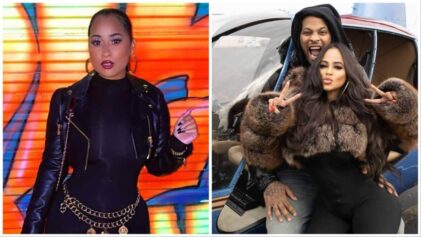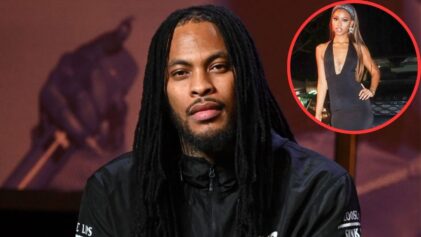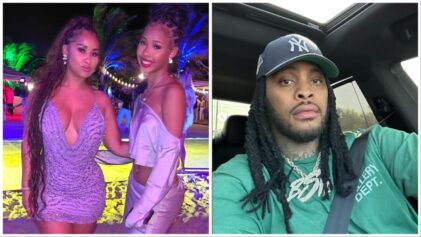After the University of Northern Iowa pulled public ticket sales for a Waka Flocka concert amid claims there was “solid evidence that area gang members from rival groups were going to attend the concert,” the show went on, but not without the rapper himself condemning the school for racism.
The artist took the stage at the institution’s Maucker Union Saturday, Feb. 16 and commented on the matter, addressing the student-only crowd.
“Y’all from a generation that don’t know racism. Stop taking up for that s—,” he said in a video captured by UNI student Katelyn Criner. “‘Cause I’ve been seeing white girls and black boys, black boys and white girls — we are not racist. That’s the old people being old.
“Let’s stop bringing they morals into our society,” continued the rapper, who tweeted “WoW 🤣” ahead of the concert concerning the ticketing plan. “They live in the past, we live in the present, and we are the future. I want y’all to listen to that — they live in the past, and they’re not our future. ‘Cause our generation, we some wild motherf–kers, man.”
I truly lived for Waka calling UNI out on their racism lmao pic.twitter.com/1k54WB0xCv
— Katelyn (@katelyncriner) February 17, 2019
UNI was accused of racism earlier that week when it cut off all non-student sales of Flocka’s concert, claiming officials told them “potential gang members” may attend, The Courier initially reported Feb. 12.
“A decision was made by the university to remove public ticket sales specifically for the safety and security of the students in attendance,” said the university’s Campus Activities Board adviser Ashley Adams, noting the concert was also going to be moved from Maucker Union to Nielsen Field House. “I don’t know the ‘whys.’”
Students met with UNI President Mark Nook and administrators and successfully got the concert to remain in its original location. Adams noted that school officials had never gotten involved with CAB-run events before. The CAB is a student-led organization.
“The university began receiving information from local law enforcement about potential gang members attending the concert,” said Office of University Relations Director Cassie Mathes to the newspaper.
She didn’t “know that level of detail” concerning specific threats but said, “Certain groups from the community were interested in attending that presented a security risk.”
Not long afterward, student leaders like Northern Iowa Student Government Senator Mahlia Brown and her fellow representatives wrote up a resolution accusing the school of “racial bias” as well as lacking “data or research to support the decisions.”
Following a town hall hosted the week of the concert, university President Mark Nook issued an apology Feb. 15.
“I am writing to apologize to the students of UNI, but especially members of the Campus Activities Board (CAB) Live and minority students,” he began. “University leadership was not as transparent and open with students as we should have been about the decision we made to limit ticket sales and change the venue for this weekend’s Waka Flocka Flame concert.”
But Nook maintained that there were legitimate concerns that violence could occur.
“The announcement of the event (which included ticket sales to the public) raised serious concerns among area police departments, which were brought to the attention of university leadership,” he wrote on Friday. “Let me be as transparent as possible: they were concerned because there was solid evidence that area gang members from rival groups were going to attend the concert, and there was significant potential for violence to occur between the groups. Police were monitoring and evaluating those conversations.”
However, Maj. Joe Leibold of the Waterloo Police Department told the Des Moines Register Feb. 18 he couldn’t state what an officer of his department “said to another officer at any given time.”
“You could’ve had a UNI officer call a Waterloo officer, and they could’ve exchanged information — that happens all the time,” he said, noting the department staffs the Safe Streets Task Force, which reports to the FBI and is focused on all violent community members — including ones affiliated with gangs. “I don’t know exactly how UNI got all their information. I don’t know where they got their information.”


